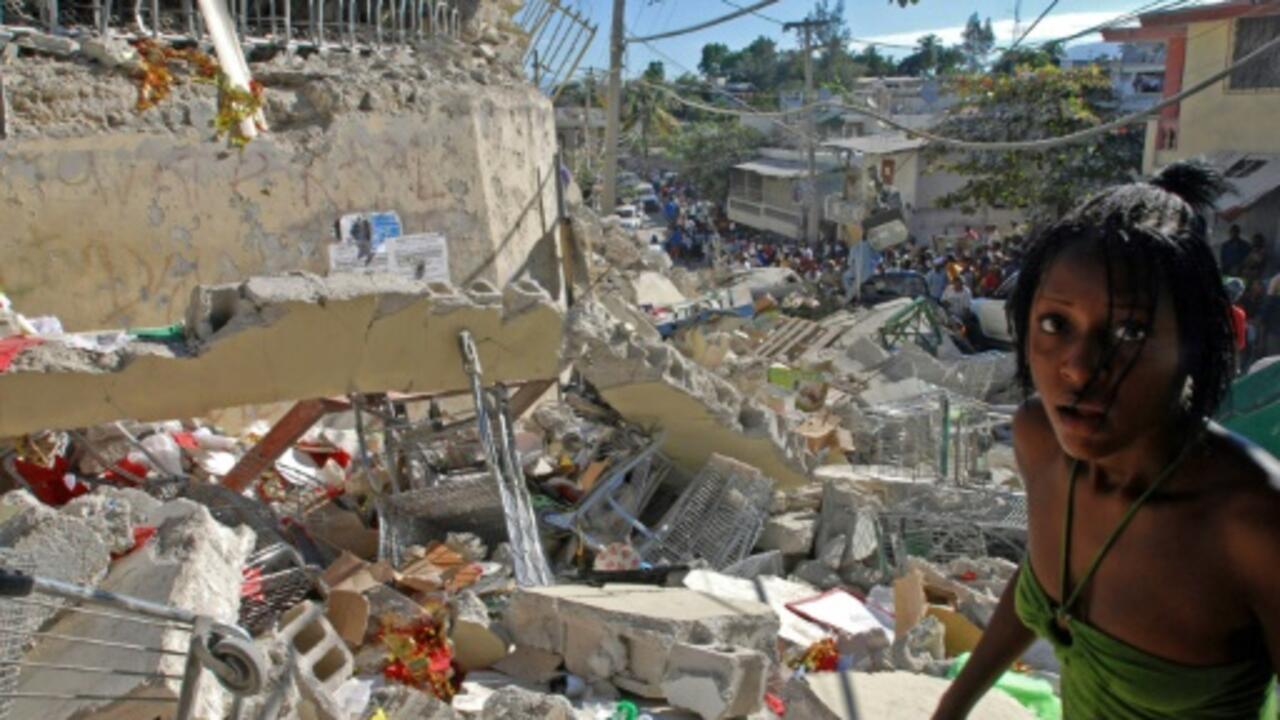Remembrance of the catastrophic earthquake that struck Haiti in 2010 comes as the country faces major challenges, including gang violence and extreme poverty.
The earthquake, which had a magnitude of 7, took place on 12 January, 2010, killing at least 200,000 people and displacing 1.5 to 2 million more. Within 30 seconds Port-au-Prince was turned upside down, families torn apart and tens of thousands of people put at risk of starvation.
Fifteen year later, the scars remain visible in the city.
Various countries and international groups raised almost $10 billion (€9.7 billion) for Haiti, pledging to rebuild the island and support its people. But Antonal Mortimé, who was at the time executive secretary of the Platform of Haitian Human Rights Organisations (POHDH), told Haitian media that the funds were not in fact invested in the reconstruction plan after the earthquake.
“Everything would have been different if the allocated funds had actually been invested,” he said.
Like him, many Haitians blame the international community and the United Nations for their slow response. They claim there was a focus on Western staff in the immediate searches.
They also blame the UN for the cholera crisis which broke out a few months after the earthquake and claimed yet more victims. It was reported that the outbreak was due to UN troops from Nepal improperly setting up waste disposal in their camp at Meille, a small village north of Port-au-Prince.
The UN admitted some responsibility in 2016, with deputy spokesman for the secretary-general, Farhan Haq, saying: “Over the past year, the UN has become convinced that it needs to do much more regarding its own involvement in the initial outbreak and the suffering of those affected by cholera.”
A generation of children is bearing the scars of Haiti’s earthquake, according to the charity Save the Children, their futures shaped by repeated displacements, ongoing crises and persistent disruption to their education over the past 15 years.
“While Haiti has made some strides in recovery, ongoing violence from armed groups has crippled progress, leaving children’s futures hanging in the balance,” the charity said in a statement issued on Wednesday, 8 January.
Chantal Sylvie Imbeault, Save the Children’s country director for Haiti, said: “Life has been a series of crises for many children in Haiti. From hurricanes to earthquakes to the rampant violence we’re seeing today, many families we’ve spoken to have been displaced eight, nine, 10 times in the past 15 years."
Referring to the situation in the country today, she added: "Armed groups have turned Port-au-Prince into an open-air prison for children. Nowhere in the city is safe. They can’t safely go to school, play outside or leave their neighbourhoods. These children’s futures are slipping away.”
President Jovenel Moise’s 2021 assassination exacerbated the instability, and the consequences of several natural disasters, including the 2010 earthquake, have worsened the crisis.
Almost half the population now lives in hunger and extreme poverty, according to the International Rescue Committee, who put Haiti on its list of “10 crises the world can’t ignore in 2025”.
But Haiti has suffered from political violence for decades, due to political instability and years of dictatorship followed by poor governance, US interventions and the consequences of the enormous debt inflicted by its former colonial ruler, France, since Haiti’s independence in 1804.
Haitians had paid more than 112 million francs to France (around €547 million) by 2022, according to research by the New York Times and academic centres.


